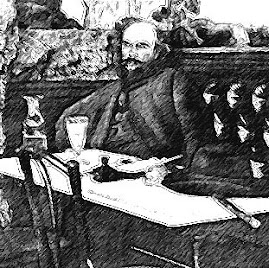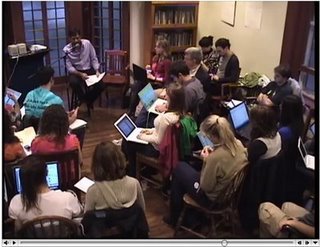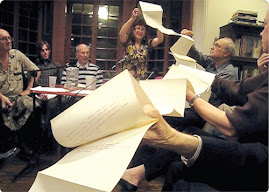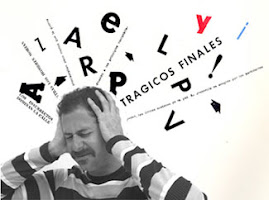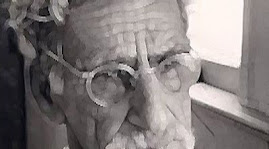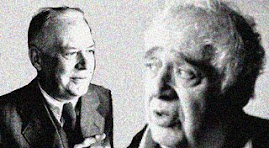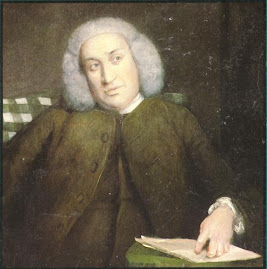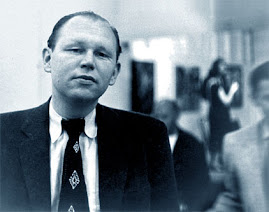 I'm taking a week's hiatus from almost all things digital. Back on Monday, April 5. I know you'll miss me.
I'm taking a week's hiatus from almost all things digital. Back on Monday, April 5. I know you'll miss me.
Monday, March 29, 2010
very printeresting
 As I've mentioned here at least several times, we are proudly part of "The Common Press," a letterpress project that is a collaboration of the Kelly Writers House, the Fine Arts Department of Penn's School of Design, and the Penn Libraries. The site "Printeresting" has a nice entry on the latest doings of The Common Press. (The Writers House imprint is called "The Fifteenth Room Press. Check us out.)
As I've mentioned here at least several times, we are proudly part of "The Common Press," a letterpress project that is a collaboration of the Kelly Writers House, the Fine Arts Department of Penn's School of Design, and the Penn Libraries. The site "Printeresting" has a nice entry on the latest doings of The Common Press. (The Writers House imprint is called "The Fifteenth Room Press. Check us out.)
a happy 60th

 Last night at the Zinc Bar in Manhattan: a celebration of Charles Bernstein's 60th birthday and the publication of his selected poems. Photographs by Lawrence Schwartzwald.
Last night at the Zinc Bar in Manhattan: a celebration of Charles Bernstein's 60th birthday and the publication of his selected poems. Photographs by Lawrence Schwartzwald.
Labels:
Charles Bernstein,
Lawrence Schwartzwald
Saturday, March 27, 2010
book arts

Listen to this announcement about our coming panel on book arts - April 15, 7 PM. The event is called "Live Paper Dolls: Re-Visioning 'Woman'" and features Sadie Stein, Susan Bee, Allison Harris, and Katie L. Price.
Labels:
book arts,
Kelly Writers House,
Susan Bee
Aaron Kramer
 We at PennSound have now created a new author page - that of the left-wing poet Aaron Kramer. Kramer was (for a time, and perhaps for a long time) a member of the Communist Party of the U.S. He was involved in just about every radical issue, cultural and straight-out political, of this time: the 1940s, 50s, 60s, 70s and 80s. Perhaps his first big break as a poet was his inclusion in the anthology, Six Poets in Search of An Answer (1944), which at a (brief) hopeful moment in the liberal-left alliance brought Aaron in with Max Bodenheim, Joy Davidman, Langston Hughes, Alfred Kreymborg (by then a vintage modernist who'd joined the radical left), Martha Millet, and Norman Rosten. His "Garcia Lorca" memorialized that poet murdered by Spanish fascists. "Berlin Air Raid" begins: "For ten years they were listening to different / sounds." "Natchez" is about southern racist violence, a place where "a hundred tabloid writers ran to the flame." I have been in touch with Aaron's daughter Laura for years. Recently she went through the attic and gathered together three shoeboxes of cassettes and VHS tapes and delivered them to us at PennSound. We are slowly going through them, digitizing them, and make them available--as always--for free download through our archive. Thanks to the work of Rebekah Caton, the first three readings are now up. Coming soon: a recording of a radio program featuring a discussion and performance by Kramer of poems from the sweatshops - verse of radical Jewish immigrants of the first years of the 20th century.
We at PennSound have now created a new author page - that of the left-wing poet Aaron Kramer. Kramer was (for a time, and perhaps for a long time) a member of the Communist Party of the U.S. He was involved in just about every radical issue, cultural and straight-out political, of this time: the 1940s, 50s, 60s, 70s and 80s. Perhaps his first big break as a poet was his inclusion in the anthology, Six Poets in Search of An Answer (1944), which at a (brief) hopeful moment in the liberal-left alliance brought Aaron in with Max Bodenheim, Joy Davidman, Langston Hughes, Alfred Kreymborg (by then a vintage modernist who'd joined the radical left), Martha Millet, and Norman Rosten. His "Garcia Lorca" memorialized that poet murdered by Spanish fascists. "Berlin Air Raid" begins: "For ten years they were listening to different / sounds." "Natchez" is about southern racist violence, a place where "a hundred tabloid writers ran to the flame." I have been in touch with Aaron's daughter Laura for years. Recently she went through the attic and gathered together three shoeboxes of cassettes and VHS tapes and delivered them to us at PennSound. We are slowly going through them, digitizing them, and make them available--as always--for free download through our archive. Thanks to the work of Rebekah Caton, the first three readings are now up. Coming soon: a recording of a radio program featuring a discussion and performance by Kramer of poems from the sweatshops - verse of radical Jewish immigrants of the first years of the 20th century.
Labels:
Aaron Kramer,
communism,
PENNsound,
poetry,
political poetry
brown appetit
 To get your daily Al daily, click here.
To get your daily Al daily, click here.
Labels:
David Milch,
Dennis Franz,
NYPD Blue,
screenwriting,
TV
Friday, March 26, 2010
going around on Moebius
 Chris Funkhouser, Sarah Dowling and Tan Lin joined me yesterday at the Writers House to talk about a Bruce Andrews poem - "Center" from Moebius. This PoemTalk session will be released a few months from now.
Chris Funkhouser, Sarah Dowling and Tan Lin joined me yesterday at the Writers House to talk about a Bruce Andrews poem - "Center" from Moebius. This PoemTalk session will be released a few months from now.
Labels:
Kelly Writers House,
PoemTalk
Thursday, March 25, 2010
are people getting better? Laurie Anderson tells us
 When Laurie Anderson spent two days with us at the Writers House in 2003, I interviewed her and moderated her discussion with others. This morning we release the segmented edition of the audio recording of that session, dividing the whole into topical parts. Here is the list of topical segments, and here is the link to our Anderson Writers House Fellows page, where you can also find links to video recordings of Laurie's performance and also of the discussion session (in RealVideo format).
When Laurie Anderson spent two days with us at the Writers House in 2003, I interviewed her and moderated her discussion with others. This morning we release the segmented edition of the audio recording of that session, dividing the whole into topical parts. Here is the list of topical segments, and here is the link to our Anderson Writers House Fellows page, where you can also find links to video recordings of Laurie's performance and also of the discussion session (in RealVideo format).1. introduction by Al Filreis (3:19)
2. on the Nerve Bible and the body (4:06)
3. on the autobiographical nature of the Nerve Bible (1:57)
4. on time and responsibility (4:34)
5. on ending but not concluding performances (2:28)
6. on performing Statue of Liberty at the 2001 Town Hall performance (8:20)
7. on starting out as an artist and being in a commune (7:49)
8. on technology and media (8:57)
9. on Puppet Motel (2:52)
10. Anderson's favorite contemporary poets (6:37)
11. on the impossibility of technology being sensually subtle (6:27)
12. on Melville's bible and Songs and Stories from Moby Dick (8:33)
13. on whether or not people are getting better (3:51)
Tuesday, March 23, 2010
Susan Howe last night & this morning
 This morning I interviewed and moderated a discussion with Susan Howe, and last night Susan read her work, including the opening pages of Melville's Marginalia, sections of The Midnight, and the poems in a series called "118 Westerly Terrace" (the address of Wallace Stevens's home). Click here for links to audio and video recordings of both events.
This morning I interviewed and moderated a discussion with Susan Howe, and last night Susan read her work, including the opening pages of Melville's Marginalia, sections of The Midnight, and the poems in a series called "118 Westerly Terrace" (the address of Wallace Stevens's home). Click here for links to audio and video recordings of both events.
Sunday, March 21, 2010
the new Eigner

Ron Silliman has written for his blog a terrific review of the big new multi-volume Collected Poems of Larry Eigner.
Labels:
Larry Eigner,
Robert Grenier,
Ron Silliman
Saturday, March 20, 2010
shadowing the season
 Here is a video recording of my interview with baseball player/writer Doug Glanville. And here is a downloadable audio mp3 version.
Here is a video recording of my interview with baseball player/writer Doug Glanville. And here is a downloadable audio mp3 version.
Labels:
baseball,
Doug Glanville
new from NO Press (Calgary)
NO press is proud to announce the release of 3 new publications:
MANIFESTO: Planning to Stay
Al Filreis
8 pp, manifesto.
limited edition of 60 handbound copies.
$3
*
4 POEMS
Reed Altemus
4 pp, visual poetry.
limited edition of 40 handbound copies
$2
*
A HOMOPHONIC TRANSLATION OF CLAUDE GAUVREAU'S TRUSTFUL FATIGUE AND REALITY
Stephen Cain
1 fold leaflet, translation.
limited edition of 40 copies
$1.50
for more information, or to order copies,
contact derek beaulieu
derek@housepress.ca
MANIFESTO: Planning to Stay
Al Filreis
8 pp, manifesto.
limited edition of 60 handbound copies.
$3
*
4 POEMS
Reed Altemus
4 pp, visual poetry.
limited edition of 40 handbound copies
$2
*
A HOMOPHONIC TRANSLATION OF CLAUDE GAUVREAU'S TRUSTFUL FATIGUE AND REALITY
Stephen Cain
1 fold leaflet, translation.
limited edition of 40 copies
$1.50
for more information, or to order copies,
contact derek beaulieu
derek@housepress.ca
Labels:
arts,
higher education,
small press
anticommunists go after gays in government, 1950
Homosexuals in government, 1950
Congressional Record, volume 96, part 4, 81st Congress 2nd Session
March 29 -- April 24, 1950
ON THE FLOOR OF THE HOUSE OF REPRESENTATIVES:
Mr. MILLER of Nebraska. Mr. Chairman, I realize that I am discussing a very delicate subject I cannot lay the bones bare like I could before medical colleagues. I would like to strip the fetid, stinking flesh off of this skeleton of homosexuality and tell my colleagues of the House some of the facts of nature. I cannot expose all the putrid facts as it would offend the sensibilities of some of you. It will be necessary to skirt some of the edges, and I use certain Latin terms to describe some of these individuals. Make no mistake several thousand, according to police records, are now employed by the Federal Government.
I offer this amendment to the Vorys amendment in good faith. Recently the spotlight of publicity has been focused not only upon the State Department but upon the Department of Commerce because of homosexuals being employed in these and other departments of Government. Recently Mr. Peurifoy, of the State Department, said he had allowed 91 individuals in the State Department to resign because they were homosexuals. Now they are like birds of a feather, they flock together. Where did they go?
You must know what a homosexual is. It is amazing that in the Capital City of Washington we are plagued with such a large group of those individuals. Washington attracts many lovely folks. The sex crimes in the city are many.
In the Eightieth Congress I was the author of the sex pervert bill that passed this Congress and is now a law in the District of Columbia. It can confine some of these people in St. Elizabeths Hospital for treatment. They are the sex perverts. Some of them are more to be pitied than condemned, because in many it is a pathological condition, very much like the kleptomaniac who must go out and steal, he has that urge; or like the pyromaniac, who goes to bed and wakes up in the middle of the night with an urge to go out and set a fire. He does that. Some of these homosexuals are in that class. Remember there were 91 of them dismissed in the State Department. That is a small percentage of those employed in Government. We learned 2 years ago that there were around 4,000 homosexuals in the District. The Police Department the other day said there were between five and six thousand in Washington who are active and that 75 percent were in Government employment. There are places in Washington where they gather for the purpose of sex orgies, where they worship at the cesspool and flesh pots of iniquity. There is a restaurant downtown where you will find male prostitutes. They solicit business for other male customers. They are pimps and undesirable characters. You will find odd words in the vocabulary of the homosexual. There are many types such as the necrophalia, fettichism, pygmalionism, fellatios, cunnilinguist, sodomatic, pederasty, saphism, sadism, and masochist. Indeed, there are many methods of practices among the homosexuals. You will find those people using the words as, "He is a fish. He is a bull-dicker. He is mamma and he is papa, and punk, and pimp." Yes; in one of our prominent restaurants rug parties and sex orgies go on. Some of those people have been in the State Department, and I understand some of them are now in the other departments. The 91 who were permitted to resign have gone some place, and, like birds of a feather, they flock together. Those people like to be known to each other. They have signs used on streetcars and in public places to call attention to others of like mind. Their rug and fairy parties are elaborate.
So I offer this amendment, and when the time comes for voting upon it, I hope that no one will object. I sometimes wonder how many of these homosexuals have had a part in shaping our foreign policy. How many have been in sensitive positions and subject to blackmail. It is a known fact that homosexuality goes back to the Orientals, lone before the time of Confucius; that the Russians are strong believers in homosexuality, and that those same people are able to get into the State Department and get somebody in their embrace, and once they are in their embrace, fearing blackmail, will make them go to any extent. Perhaps if all the facts were known these same homosexuals have been used by the Communists.
I realize that there is some physical danger to anyone exposing all of the details and nastiness of homosexuality, because some of these people are dangerous. They will go to any limit. These homosexuals have strong emotions. They are not to be trusted and when blackmail threatens they are a dangerous group.
The Army at one time gave these individuals a dishonorable discharge and later changed the type of discharge. They are not knowingly kept in Army service. They should not be employed in Government. I trust both sides of the aisle will support the amendment.
Page 5401-5402
 Photo: George A. Dondero
Photo: George A. Dondero
Mr. DONDERO. Was there any evidence or testimony before the gentleman's committee with respect to the number of people who were separated from the service in the Department of State who had later acquired positions in other departments of Government? I refer to those whose employment was considered a security risk. Was anything said before your committee on that subject?
Mr. CLEVENGER. I will say to the gentleman, I brought that question up a year ago, as to whether the other departments would be alerted so that they might not hire these--we can name them now--these homosexuals. Until the Assistant Secretary of State, Mr. Peurifoy, made that word public over in the other body, we had insufficient information so far as the committee was concerned and could not tell you. In reply to my question we were informed they were not, and unofficially we were told, or at least I was told, that they have been employed in other sections of the Government, at least most of them were.
Mr. DONDERO. The reason I asked that question is that I made inquiry by letter to find out where these people went and whether they are now employed by our Government and I have not yet received a reply giving me any information on the subject.
Mr. CLEVENGER. If the gentleman will look at the report he will find some information on that subject.
I am going to address myself now to conditions we have discovered in the Department of Commerce. When I asked the security officer if he would flag them, he said he would. I told him I was very much afraid he could not, because of an Executive order which was issued restricting the information being given on these people.
The air is full of stories. The press is full of stories. I am not passing on that.
In discussing the constitutionality of the so-called loyalty program, John Edgar Hoover, Director of the FBI, had occasion to cite a decision of the circuit court of appeals rendered on August 11, 1949, involving the Joint Anti-Fascist Committee. A portion of that decision is worthy of repetition here:
Contrary to the contentions of the committee, nothing in the Hatch Act or the loyalty program deprives the committee or its members of any property rights. Freedom of speech and assembly is denied no one. Freedom of though and belief is not impaired. Anyone is free to join the committee and give it his support and encouragement. Everyone has the constitutional right to do these things, but no one has a constitutional right to be a Government employee.
For emphasis permit me to repeat the last phrase, "but no one has a constitutional right to be a Government employee."
It seems to me that the crux of our entire security program lies in that phrase. It is indeed a privilege and certainly not a right to work for the Government and it is time we cleared the air on the misconceptions of a good many well-intentioned people who have been misled by the propaganda of the Communist and the fellow traveler into the belief that the burden of "proof of qualification" lies on the employer in this case, the Government, rather than on the employee. Nothing could be further from the truth. The Government has the right, nay the obligation, to set up standards for performance of duty not only for prospective employees but for those already on the rolls. This sacred obligation to the taxpayer implies the summary removal of any employee who does not measure up to these standards, the avails and crocodile tears of the fuzzy-minded to the contrary notwithstanding. It is tragically true that our present administration has been sadly lacking in the courage or capacity necessary to carry out these obligations but this does not excuse, or in no way alter or mitigate these obligations.
We have heard a great deal in recent weeks concerning the security risks within the Department of State and I would like to say that while I am not familiar with the charges being bandied about I think the basic issue has been somewhat obscured in the unfortunate partisanship that has developed in this inquiry that is of prime importance to every American, Republican or Democrat.
The sob sisters and thumb-sucking liberals are crying for proof of disloyalty in the form of overt acts, on any security risks who are being removed from the Government rolls, but shed no tears for the lives lost as a result of the activities of the Hiss', Coplon's, and the Wadleigh's, all of whom would or did pass the loyalty standards with flying colors.
I wish the American people would keep in mind the fact that a security risk does not have to be a member of the Communist Party or even of a Communist-front organization. It is not only conceivable but highly probable that many security risks are loyal Americans; however, there is something in their background that represents a potential possibility that they might succumb to conflicting emotions to the detriment of the national security. Perhaps they have relatives behind the iron curtain and thus would be subject to pressure. Perhaps they are addicted to an overindulgence in alcohol or maybe they are just plain garrulous. The most flagrant example is the homosexual who is subject to the most effective blackmail. It is an established fact that Russia makes a practice of keeping a list of sex perverts in enemy countries and the core of Hitler's espionage was based on the intimidation of these unfortunate people.
Despite this fact however, the Under Secretary of State recently testified that 91 sex perverts had been located and fired from the Department of State. For this the Department must be commended. But have they gone far enough? Newspaper accounts quote Senate testimony indicating there are 400 more in the State Department and 4,000 in Government. Where are they? Who hired them? Do we have a cell of these perverts hiding around Government? Why are they not ferreted out and dismissed? Does the Department of State have access to information in the files of the Washington Police Department? Are we to assume that the State Department has a monopoly on this problem? What are the other Departments of Government doing about this ?
For years we had a public prejudice against mentioning in public such loath some diseases as gonorrhea and cancer. In effecting cures for these maladies the medical people recognized the first step was in public education. These matters were brought before the public and frankly discussed and it was not until then that progress was really made, It is time to bring this homosexual problem into the open and recognize the problem for what it is.
The Commerce Department hearings are somewhat enlightening in regard to the entire security problem and I would suggest that interested Members read them in detail beginning on page 2260.
Here we find that the Commerce Department has not located any homosexuals in their organization. Are we to believe that in the face of the testimony of the District of Columbia police that 75 percent of the 4,000 perverts in the District of Columbia are employed by the Government, that the Department of Commerce has none?
What is wrong with this loyalty program that does not uncover these matters, and when it does, adopts an attitude of looking for proof of disloyalty in the form of overt acts rather than elements of security risk? Is it not possible for the Government to refuse employment on the grounds of lack of qualifications where risk is apparent? This is not necessarily an indictment or conviction; it is merely the exercise of caution for the common welfare.
Congressional Record, volume 96, part 4, 81st Congress 2nd Session
March 29 -- April 24, 1950
ON THE FLOOR OF THE HOUSE OF REPRESENTATIVES:
Mr. MILLER of Nebraska. Mr. Chairman, I realize that I am discussing a very delicate subject I cannot lay the bones bare like I could before medical colleagues. I would like to strip the fetid, stinking flesh off of this skeleton of homosexuality and tell my colleagues of the House some of the facts of nature. I cannot expose all the putrid facts as it would offend the sensibilities of some of you. It will be necessary to skirt some of the edges, and I use certain Latin terms to describe some of these individuals. Make no mistake several thousand, according to police records, are now employed by the Federal Government.
I offer this amendment to the Vorys amendment in good faith. Recently the spotlight of publicity has been focused not only upon the State Department but upon the Department of Commerce because of homosexuals being employed in these and other departments of Government. Recently Mr. Peurifoy, of the State Department, said he had allowed 91 individuals in the State Department to resign because they were homosexuals. Now they are like birds of a feather, they flock together. Where did they go?
You must know what a homosexual is. It is amazing that in the Capital City of Washington we are plagued with such a large group of those individuals. Washington attracts many lovely folks. The sex crimes in the city are many.
In the Eightieth Congress I was the author of the sex pervert bill that passed this Congress and is now a law in the District of Columbia. It can confine some of these people in St. Elizabeths Hospital for treatment. They are the sex perverts. Some of them are more to be pitied than condemned, because in many it is a pathological condition, very much like the kleptomaniac who must go out and steal, he has that urge; or like the pyromaniac, who goes to bed and wakes up in the middle of the night with an urge to go out and set a fire. He does that. Some of these homosexuals are in that class. Remember there were 91 of them dismissed in the State Department. That is a small percentage of those employed in Government. We learned 2 years ago that there were around 4,000 homosexuals in the District. The Police Department the other day said there were between five and six thousand in Washington who are active and that 75 percent were in Government employment. There are places in Washington where they gather for the purpose of sex orgies, where they worship at the cesspool and flesh pots of iniquity. There is a restaurant downtown where you will find male prostitutes. They solicit business for other male customers. They are pimps and undesirable characters. You will find odd words in the vocabulary of the homosexual. There are many types such as the necrophalia, fettichism, pygmalionism, fellatios, cunnilinguist, sodomatic, pederasty, saphism, sadism, and masochist. Indeed, there are many methods of practices among the homosexuals. You will find those people using the words as, "He is a fish. He is a bull-dicker. He is mamma and he is papa, and punk, and pimp." Yes; in one of our prominent restaurants rug parties and sex orgies go on. Some of those people have been in the State Department, and I understand some of them are now in the other departments. The 91 who were permitted to resign have gone some place, and, like birds of a feather, they flock together. Those people like to be known to each other. They have signs used on streetcars and in public places to call attention to others of like mind. Their rug and fairy parties are elaborate.
So I offer this amendment, and when the time comes for voting upon it, I hope that no one will object. I sometimes wonder how many of these homosexuals have had a part in shaping our foreign policy. How many have been in sensitive positions and subject to blackmail. It is a known fact that homosexuality goes back to the Orientals, lone before the time of Confucius; that the Russians are strong believers in homosexuality, and that those same people are able to get into the State Department and get somebody in their embrace, and once they are in their embrace, fearing blackmail, will make them go to any extent. Perhaps if all the facts were known these same homosexuals have been used by the Communists.
I realize that there is some physical danger to anyone exposing all of the details and nastiness of homosexuality, because some of these people are dangerous. They will go to any limit. These homosexuals have strong emotions. They are not to be trusted and when blackmail threatens they are a dangerous group.
The Army at one time gave these individuals a dishonorable discharge and later changed the type of discharge. They are not knowingly kept in Army service. They should not be employed in Government. I trust both sides of the aisle will support the amendment.
Page 5401-5402
 Photo: George A. Dondero
Photo: George A. DonderoMr. DONDERO. Was there any evidence or testimony before the gentleman's committee with respect to the number of people who were separated from the service in the Department of State who had later acquired positions in other departments of Government? I refer to those whose employment was considered a security risk. Was anything said before your committee on that subject?
Mr. CLEVENGER. I will say to the gentleman, I brought that question up a year ago, as to whether the other departments would be alerted so that they might not hire these--we can name them now--these homosexuals. Until the Assistant Secretary of State, Mr. Peurifoy, made that word public over in the other body, we had insufficient information so far as the committee was concerned and could not tell you. In reply to my question we were informed they were not, and unofficially we were told, or at least I was told, that they have been employed in other sections of the Government, at least most of them were.
Mr. DONDERO. The reason I asked that question is that I made inquiry by letter to find out where these people went and whether they are now employed by our Government and I have not yet received a reply giving me any information on the subject.
Mr. CLEVENGER. If the gentleman will look at the report he will find some information on that subject.
I am going to address myself now to conditions we have discovered in the Department of Commerce. When I asked the security officer if he would flag them, he said he would. I told him I was very much afraid he could not, because of an Executive order which was issued restricting the information being given on these people.
The air is full of stories. The press is full of stories. I am not passing on that.
In discussing the constitutionality of the so-called loyalty program, John Edgar Hoover, Director of the FBI, had occasion to cite a decision of the circuit court of appeals rendered on August 11, 1949, involving the Joint Anti-Fascist Committee. A portion of that decision is worthy of repetition here:
Contrary to the contentions of the committee, nothing in the Hatch Act or the loyalty program deprives the committee or its members of any property rights. Freedom of speech and assembly is denied no one. Freedom of though and belief is not impaired. Anyone is free to join the committee and give it his support and encouragement. Everyone has the constitutional right to do these things, but no one has a constitutional right to be a Government employee.
For emphasis permit me to repeat the last phrase, "but no one has a constitutional right to be a Government employee."
It seems to me that the crux of our entire security program lies in that phrase. It is indeed a privilege and certainly not a right to work for the Government and it is time we cleared the air on the misconceptions of a good many well-intentioned people who have been misled by the propaganda of the Communist and the fellow traveler into the belief that the burden of "proof of qualification" lies on the employer in this case, the Government, rather than on the employee. Nothing could be further from the truth. The Government has the right, nay the obligation, to set up standards for performance of duty not only for prospective employees but for those already on the rolls. This sacred obligation to the taxpayer implies the summary removal of any employee who does not measure up to these standards, the avails and crocodile tears of the fuzzy-minded to the contrary notwithstanding. It is tragically true that our present administration has been sadly lacking in the courage or capacity necessary to carry out these obligations but this does not excuse, or in no way alter or mitigate these obligations.
We have heard a great deal in recent weeks concerning the security risks within the Department of State and I would like to say that while I am not familiar with the charges being bandied about I think the basic issue has been somewhat obscured in the unfortunate partisanship that has developed in this inquiry that is of prime importance to every American, Republican or Democrat.
The sob sisters and thumb-sucking liberals are crying for proof of disloyalty in the form of overt acts, on any security risks who are being removed from the Government rolls, but shed no tears for the lives lost as a result of the activities of the Hiss', Coplon's, and the Wadleigh's, all of whom would or did pass the loyalty standards with flying colors.
I wish the American people would keep in mind the fact that a security risk does not have to be a member of the Communist Party or even of a Communist-front organization. It is not only conceivable but highly probable that many security risks are loyal Americans; however, there is something in their background that represents a potential possibility that they might succumb to conflicting emotions to the detriment of the national security. Perhaps they have relatives behind the iron curtain and thus would be subject to pressure. Perhaps they are addicted to an overindulgence in alcohol or maybe they are just plain garrulous. The most flagrant example is the homosexual who is subject to the most effective blackmail. It is an established fact that Russia makes a practice of keeping a list of sex perverts in enemy countries and the core of Hitler's espionage was based on the intimidation of these unfortunate people.
Despite this fact however, the Under Secretary of State recently testified that 91 sex perverts had been located and fired from the Department of State. For this the Department must be commended. But have they gone far enough? Newspaper accounts quote Senate testimony indicating there are 400 more in the State Department and 4,000 in Government. Where are they? Who hired them? Do we have a cell of these perverts hiding around Government? Why are they not ferreted out and dismissed? Does the Department of State have access to information in the files of the Washington Police Department? Are we to assume that the State Department has a monopoly on this problem? What are the other Departments of Government doing about this ?
For years we had a public prejudice against mentioning in public such loath some diseases as gonorrhea and cancer. In effecting cures for these maladies the medical people recognized the first step was in public education. These matters were brought before the public and frankly discussed and it was not until then that progress was really made, It is time to bring this homosexual problem into the open and recognize the problem for what it is.
The Commerce Department hearings are somewhat enlightening in regard to the entire security problem and I would suggest that interested Members read them in detail beginning on page 2260.
Here we find that the Commerce Department has not located any homosexuals in their organization. Are we to believe that in the face of the testimony of the District of Columbia police that 75 percent of the 4,000 perverts in the District of Columbia are employed by the Government, that the Department of Commerce has none?
What is wrong with this loyalty program that does not uncover these matters, and when it does, adopts an attitude of looking for proof of disloyalty in the form of overt acts rather than elements of security risk? Is it not possible for the Government to refuse employment on the grounds of lack of qualifications where risk is apparent? This is not necessarily an indictment or conviction; it is merely the exercise of caution for the common welfare.
Thursday, March 18, 2010
security? what security? we don't really mean security

 Every once in a while I've been checking the blog of unnecessary quotation marks. Scare quotes and other similar infelicitous uses of quotation have long driven "me" "crazy." The title of the blog entry featuring the massage sign above is: Real Pros. Ah, the unintended euphemisms of our daily lives.
Every once in a while I've been checking the blog of unnecessary quotation marks. Scare quotes and other similar infelicitous uses of quotation have long driven "me" "crazy." The title of the blog entry featuring the massage sign above is: Real Pros. Ah, the unintended euphemisms of our daily lives.
Labels:
blogging,
grammar,
quotation marks
Wednesday, March 17, 2010
I feel like I'm being pitched a product in a cheesy office sitcom
 Hillary Reinsberg, one of my advisees here at Penn and a fabulously snarky blogger and twitterer, is writing pieces now for The Huffington Post. Her first piece is about technology in the classroom. The power-point-aided lecture of today puts her to sleep. "While our parents' generation bemoans those pontificating figureheads of yesteryear, could today's PowerPoint-reliant professors be even worse?" Anyone who has read this blog's more or less constant campaign against the lecture will easily guess that I'm going to side with Hillary, although in my view she doesn't quite find the core of the problem. Giving an old-fashioned "oration" in lieu of PowerPoint slides is not really any better. The problem is that, given what new media enables us to do outside the classroom time and space, we are still using that precious site for set-piece talks (talkings-at) rather than real interaction, which is the mode in which people learn best. But I like Hillary's skeptical verve here and I'm proud to say that students don't fall asleep in my classroom (they can't; they're too edgily ready to talk next).
Hillary Reinsberg, one of my advisees here at Penn and a fabulously snarky blogger and twitterer, is writing pieces now for The Huffington Post. Her first piece is about technology in the classroom. The power-point-aided lecture of today puts her to sleep. "While our parents' generation bemoans those pontificating figureheads of yesteryear, could today's PowerPoint-reliant professors be even worse?" Anyone who has read this blog's more or less constant campaign against the lecture will easily guess that I'm going to side with Hillary, although in my view she doesn't quite find the core of the problem. Giving an old-fashioned "oration" in lieu of PowerPoint slides is not really any better. The problem is that, given what new media enables us to do outside the classroom time and space, we are still using that precious site for set-piece talks (talkings-at) rather than real interaction, which is the mode in which people learn best. But I like Hillary's skeptical verve here and I'm proud to say that students don't fall asleep in my classroom (they can't; they're too edgily ready to talk next).Bruce Finsilver: "My favorite falling-asleep-in-class story from Penn: One morning as I was walking into a lecture, the students exiting the previous class were all ‘shushing’ us. I saw a poor guy sound asleep in the 5th row. Our lecturer walked in and began as usual. After about a half-hour, the sleeper woke up. We all watched as he tried to figure out where he was and what to do about it; should he sit out the rest of the lecture and pretend nothing was amiss, or should he just get up and leave? He finally stood up and marched out to general hysteria from the rest of us."
Labels:
end of the lecture,
higher education,
pedagogy
on becoming a character
 In 2002, during his visit to the Writers House, I interviewed novelist Michael Cunningham. Just today Jenny Lesser segmented the audio recording of that discussion into topics. You can listen to any of these segments, or all of them, by going here, and here is the list:
In 2002, during his visit to the Writers House, I interviewed novelist Michael Cunningham. Just today Jenny Lesser segmented the audio recording of that discussion into topics. You can listen to any of these segments, or all of them, by going here, and here is the list:* introduction by Al Filreis (6:32)
* on the gap between the ideal and the actual creation (4:35)
* on youth, conventionality, creation and The Hours (3:43)
* on changing circumstances and Cunningham's Clarissa (4:38)
* on pacing ideas in writing (2:53)
* on first reading Virginia Woolf (7:18)
* on being defined as a gay writer (4:00)
* on writing from Virginia Woolf's point of view (3:55)
* on faith, doctors, and Virginia Woolf (6:34)
* on gay boyhoods and the numbness and separateness experienced by outsiders (7:10)
* on personal politics and becoming a character (5:15)
* on Golden States (5:50)
* who Cunningham thanks for The Hours (1:24)
* reading from At Home at the End of the World (3:26)
At some point during our conversation we talked about the making of the film version of The Hours. By the time of Cunningham's visit, the film was in process, or it had been made but not yet released. He spoke admiringly of the film's Clarissa--Meryl Streep--and talked about the thrill of having his own tiny role in the film (a friend Clarissa meets along a Greenwich Village street). Well, our favorite literary photographer, Lawrence Schwartzwald, was there at the moment, yes, and took the photo below of Cunningham and Streep. It was February 1, 2001, and the precise location was Bleecker and Charles.

Tuesday, March 16, 2010
Susan Sontag, in the same zone
 When the late Susan Sontag visited the Kelly Writers House, we had a series of extraordinarily heady discussions. Anyone who has read Sontag can easily imagine this, I think. But at KWH it somehow really clicked. During my interview with her on the last morning of her visit, she gave us high praise - which I've just listened to again after some years: audio. And click here to see the whole conversation segmented into topics.
When the late Susan Sontag visited the Kelly Writers House, we had a series of extraordinarily heady discussions. Anyone who has read Sontag can easily imagine this, I think. But at KWH it somehow really clicked. During my interview with her on the last morning of her visit, she gave us high praise - which I've just listened to again after some years: audio. And click here to see the whole conversation segmented into topics.
Monday, March 15, 2010
bound for Treblinka
 This is the Handscher family in Warsaw, Poland. My father's mother, Jenny, was born Jenny Handscher. These people are her brothers and sisters - and her parents, my great-grandparents. In the bottom row, from left to right, we have Schloime (who survived and later came to the U.S.); Eliezer (father of Menachem/Mike and Meyer who also survived); the parents, Menachem and Tova; the youngest of the children, Bezalel. In the back row, from left to right: the youngest daughter, whose name we don't know; Jenny (my grandmother); Minnie (who came to the U.S. with Jenny). Killed at Treblinka, so far as we know: Eliezer, Bezalel, the youngest daughter, and both parents. This photo was given to my father by my grandmother, and by my father to me. Just today I heard from Eliezer's grandson, Nachum Handscher, who lives in Israel. Nachum is the son of Mike/Menachem, one of Eliezer's sons. The story of the survival of Eliezer's sons, Mike and Meyer, is a long, complex and dramatic one - not for this entry, but later, someday.
This is the Handscher family in Warsaw, Poland. My father's mother, Jenny, was born Jenny Handscher. These people are her brothers and sisters - and her parents, my great-grandparents. In the bottom row, from left to right, we have Schloime (who survived and later came to the U.S.); Eliezer (father of Menachem/Mike and Meyer who also survived); the parents, Menachem and Tova; the youngest of the children, Bezalel. In the back row, from left to right: the youngest daughter, whose name we don't know; Jenny (my grandmother); Minnie (who came to the U.S. with Jenny). Killed at Treblinka, so far as we know: Eliezer, Bezalel, the youngest daughter, and both parents. This photo was given to my father by my grandmother, and by my father to me. Just today I heard from Eliezer's grandson, Nachum Handscher, who lives in Israel. Nachum is the son of Mike/Menachem, one of Eliezer's sons. The story of the survival of Eliezer's sons, Mike and Meyer, is a long, complex and dramatic one - not for this entry, but later, someday.
Labels:
holocaust,
Jewish culture
Sunday, March 14, 2010
the second-floor terrace of well-being

Erica Baum's new project is called Dog Ear. Photographs of consecutive pages of what seem to be old books. Dog-ear one page to create an origami-perfect right angle and the result is a kind of cut-up, only the text of the back side of the first page runs up-to-down rather than right-to-left, so the right-to-left lines of the previous page now revealed run to a corner and then turn 90 degrees. So we get, for instance: "made her feel as if of objects shaped." Can't wait to see the real project. Meantime, see you on the "second-floor terrace of well-being."
Ubu has already added Dog Ear to its terrific Erica Baum page, so I urge all readers of this blog to go there and find the link.
See a few earlier blog posts about Erica Baum's work.
Labels:
cut-ups,
Erica Baum,
photography
Friday, March 12, 2010
another for the "what coulda been" department
Thursday, March 11, 2010
marginalia is no longer marginal
 I'm reading Susan Howe's Melville's Marginalia. Years ago, at the start of my own antiquarianism, I got deeply into writers' marginalia myself. I looked into Melville's reading, as have many scholars over the decades. He was one of those who left traces of his responses to reading. This morning I went to the web--of course--following an impulse to see if the scholarship was still out of the way, out of print, hard to find - itself, in short, marginal. But no. There's a fabulous web site that shows us everything. Here's your link. Go deep.
I'm reading Susan Howe's Melville's Marginalia. Years ago, at the start of my own antiquarianism, I got deeply into writers' marginalia myself. I looked into Melville's reading, as have many scholars over the decades. He was one of those who left traces of his responses to reading. This morning I went to the web--of course--following an impulse to see if the scholarship was still out of the way, out of print, hard to find - itself, in short, marginal. But no. There's a fabulous web site that shows us everything. Here's your link. Go deep.
Labels:
archives,
emphemera,
marginalia,
Melville,
Susan Howe
Wednesday, March 10, 2010
Tuesday, March 09, 2010
in the "is it worth it?" department
 Despite great claims made for the introduction of computer and other new-media hardware and software into the classroom, and huge expenditures made by colleges and universities, 60% of the undergraduate students surveyed for a 2007 report by the Educause Center for Applied Research said that they disagreed with the statement, “I am more engaged in courses that use technology.”* The issue, of course, is not whether we should be equipping our classrooms with the necessary current tools; we should. No the issue is whether teachers feel that in such a setting the box marked "learners' engagement" has been checked.
Despite great claims made for the introduction of computer and other new-media hardware and software into the classroom, and huge expenditures made by colleges and universities, 60% of the undergraduate students surveyed for a 2007 report by the Educause Center for Applied Research said that they disagreed with the statement, “I am more engaged in courses that use technology.”* The issue, of course, is not whether we should be equipping our classrooms with the necessary current tools; we should. No the issue is whether teachers feel that in such a setting the box marked "learners' engagement" has been checked.“The ECAR Study of Undergraduate Students and Information Technology, 2007,” September 12, 2007, educause.edu/ir/library.
Labels:
higher education,
tech
from the blog archive
I posted this (below) in the fall of 2007. Of the 1,111 entries added to this blog, this is one of those that generates an especially great number of responses. I don't have a reply function here (for many reasons) but you can always reach me at afilreis [at] gmail [dot] com.
- - -
 Tom Short, an itinerant evangelist brought to campus by the A&M Christian Fellowship, told one student that, because she is Jewish, she is going "to burn in Hell." He told another Jewish student that "Hitler did not go far enough."
Tom Short, an itinerant evangelist brought to campus by the A&M Christian Fellowship, told one student that, because she is Jewish, she is going "to burn in Hell." He told another Jewish student that "Hitler did not go far enough."
This was the lead in a November 1996 story about anti-semitism at Texas A&M University.
Shortly after the incident was described on a Holocaust listserv to which I subscribed in those days, a scholar called the leaders of a Christian organization on that campus and then posted a response, which included this comment: "Subscribers may be interested to know that I have spoken with both the adviser and student president of the A&M Christian Fellowship, the organization that invited the antisemitic preacher Tom Short to campus. Both claimed that his comment about Hitler was 'taken out of context,' and that Short 'is not that kind of man.'"
(Well, what "kind" exactly is he?)
I posted these materials to my Holocaust site at the time and it has received more response from viewers than almost anything else.
- - -
 Tom Short, an itinerant evangelist brought to campus by the A&M Christian Fellowship, told one student that, because she is Jewish, she is going "to burn in Hell." He told another Jewish student that "Hitler did not go far enough."
Tom Short, an itinerant evangelist brought to campus by the A&M Christian Fellowship, told one student that, because she is Jewish, she is going "to burn in Hell." He told another Jewish student that "Hitler did not go far enough."This was the lead in a November 1996 story about anti-semitism at Texas A&M University.
Shortly after the incident was described on a Holocaust listserv to which I subscribed in those days, a scholar called the leaders of a Christian organization on that campus and then posted a response, which included this comment: "Subscribers may be interested to know that I have spoken with both the adviser and student president of the A&M Christian Fellowship, the organization that invited the antisemitic preacher Tom Short to campus. Both claimed that his comment about Hitler was 'taken out of context,' and that Short 'is not that kind of man.'"
(Well, what "kind" exactly is he?)
I posted these materials to my Holocaust site at the time and it has received more response from viewers than almost anything else.
Labels:
anti-Semitism,
higher education,
holocaust
Monday, March 08, 2010
Susan Howe, March 22-23
"Listening to Susan Howe read is like staring
into a lake enchanted mesmerized drawn closer and closer
until the tip of the nose touches water & then
swiftly one senses danger danger a warning a voice saying No,
no wrong way not the lake not the lake over here
& yes she's over there now &
the magnetic pull begins again."--Maureen Owen
Susan Howe will be our second of three spring 2010 Kelly Writers House Fellows. She will be visiting much of the week of March 22. These are the two public Fellows events:
* Monday, March 22, 6:30 PM - a reading
* Tuesday, March 23, 10 AM - brunch followed by interview/conversation moderated by me
 Seats are strictly limited. The two sessions are free and open to the public - but, again, seats are limited and attendees must RSVP in advance. To reserve seats, write to whfellow [at] writing [dot] upenn [dot] edu or call (215) 573-9749. For more information, see: http://writing.upenn.edu/wh/people/fellows/
Seats are strictly limited. The two sessions are free and open to the public - but, again, seats are limited and attendees must RSVP in advance. To reserve seats, write to whfellow [at] writing [dot] upenn [dot] edu or call (215) 573-9749. For more information, see: http://writing.upenn.edu/wh/people/fellows/
KELLY WRITERS HOUSE FELLOWS, 1999-2010:
2010:
• Joyce Carol Oates
• Susan Howe
• David Milch
2009
• Robert Coover
• Joan Didion
• Mary Gordon
2008
• Art Spiegelman
• Lynne Sharon Schwartz
• Jerome Rothenberg
2007
• John McPhee
• Jamaica Kincaid
• Donald Hall
2006
• Richard Ford
• Cynthia Ozick
• Ian Frazier
2005
• Roger Angell
• E.L. Doctorow
• Adrienne Rich
2004
• Lyn Hejinian
• Russell Banks
• James Alan McPherson
2003
• Walter Bernstein
• Laurie Anderson
• Susan Sontag
2002
• Michael Cunningham
• John Ashbery
• Charles Fuller
2001
• Tony Kushner
• David Sedaris
• June Jordan
2000
• Grace Paley
• Robert Creeley
• John Edgar Wideman
1999
• Gay Talese
into a lake enchanted mesmerized drawn closer and closer
until the tip of the nose touches water & then
swiftly one senses danger danger a warning a voice saying No,
no wrong way not the lake not the lake over here
& yes she's over there now &
the magnetic pull begins again."--Maureen Owen
Susan Howe will be our second of three spring 2010 Kelly Writers House Fellows. She will be visiting much of the week of March 22. These are the two public Fellows events:
* Monday, March 22, 6:30 PM - a reading
* Tuesday, March 23, 10 AM - brunch followed by interview/conversation moderated by me
 Seats are strictly limited. The two sessions are free and open to the public - but, again, seats are limited and attendees must RSVP in advance. To reserve seats, write to whfellow [at] writing [dot] upenn [dot] edu or call (215) 573-9749. For more information, see: http://writing.upenn.edu/wh/people/fellows/
Seats are strictly limited. The two sessions are free and open to the public - but, again, seats are limited and attendees must RSVP in advance. To reserve seats, write to whfellow [at] writing [dot] upenn [dot] edu or call (215) 573-9749. For more information, see: http://writing.upenn.edu/wh/people/fellows/KELLY WRITERS HOUSE FELLOWS, 1999-2010:
2010:
• Joyce Carol Oates
• Susan Howe
• David Milch
2009
• Robert Coover
• Joan Didion
• Mary Gordon
2008
• Art Spiegelman
• Lynne Sharon Schwartz
• Jerome Rothenberg
2007
• John McPhee
• Jamaica Kincaid
• Donald Hall
2006
• Richard Ford
• Cynthia Ozick
• Ian Frazier
2005
• Roger Angell
• E.L. Doctorow
• Adrienne Rich
2004
• Lyn Hejinian
• Russell Banks
• James Alan McPherson
2003
• Walter Bernstein
• Laurie Anderson
• Susan Sontag
2002
• Michael Cunningham
• John Ashbery
• Charles Fuller
2001
• Tony Kushner
• David Sedaris
• June Jordan
2000
• Grace Paley
• Robert Creeley
• John Edgar Wideman
1999
• Gay Talese
Sunday, March 07, 2010
Miller avoided crucible
 Arthur Miller might well have been a communist. He wrote for communist publications and seems to have had a significant editorial role (under a pseudonym), was involved in a series of CPUSA meetings, gatherings and projects, and there's a boatload of further circumstantial evidence. He was of course questioned by the House UnAmerican Activities Committee but managed to avert direct response to The Question, and quasi-evoked the 1st and 5th amendments to stave them off. In any case, it seems that the HUAC investigators did not have even the beginnings of the evidence Alan Wald has gathered and published in a chapter in his book Trinity of Passion, the second of his three-volume narrative of American radical writers in the 20th century. I mention Wald's Miller findings in my review of Wald's triology - in Left History's Fall/Winter 2007 issue. Here is the review (PDF).
Arthur Miller might well have been a communist. He wrote for communist publications and seems to have had a significant editorial role (under a pseudonym), was involved in a series of CPUSA meetings, gatherings and projects, and there's a boatload of further circumstantial evidence. He was of course questioned by the House UnAmerican Activities Committee but managed to avert direct response to The Question, and quasi-evoked the 1st and 5th amendments to stave them off. In any case, it seems that the HUAC investigators did not have even the beginnings of the evidence Alan Wald has gathered and published in a chapter in his book Trinity of Passion, the second of his three-volume narrative of American radical writers in the 20th century. I mention Wald's Miller findings in my review of Wald's triology - in Left History's Fall/Winter 2007 issue. Here is the review (PDF). Miller's having been affiliated with--perhaps a member of--the CPUSA doesn't alter the meaning or significance of his plays, doesn't change at least my own sense of his political views. But consider that Miller has been written about and written about--many dozens of scholarly articles, monographs by biographers and biographical critics. Are we so unattuned to the traces of American radical culture that we can't discern the evidence that Wald--not a Millerite, not a scholar of dramatic literature--found with a bit of hard work? For one thing, one has to read the long-forgotten (and in the 1950s suppressed or unavailable) communist and communist-affiliated journals and magazines. The fact is, when most academic critics of Miller's mode and genre were being trained in the graduate schools, or were getting tenure, this kind of research would not have been favored. That's saying the very least. We know a ton about his relationship with Marilyn Monroe. We know nothing (until Wald's work) about his political affiliations in the 1940s. Nearly every high school student has had to read The Crucible or Death of a Salesman but there's no way that the actual anti-anticommunism of the first play, or the anti-mercantilism (the devastating effects of alienated labor) of the second, would permit Marxist explanation if there had been a demonstrated connection between the beloved "heterodox" playwright and an actual Marxist political party in this country.
Labels:
Alan Wald,
anticommunism,
Arthur Miller,
communism,
radicalism
Saturday, March 06, 2010
when the medium is finally the message, I say the message is the message
I jotted this note in 2002:
 For people who run universities, especially those hard pressed to claim innovation and to respond somehow to the "information age," the allure of cliche postmodernity is great. The medium, to them, is the message. (Finally.) "Distance learning" is a fat pipeline, a delivery mechanism for content, the content being secondary ("x," a curricular blank to be filled out of material already in the course catalogue). But content, roughly speaking, has been the means by which intellectual communities have formed, and in the politics of the supposed coming cyber-university, real virtual communities are labor-intensive and expensive. And they have all the down sides that any communal activity does when it functions freely within a centrally organized organization. To resist, we assert that the medium is not the message. If the message has been experimental, either pedagogically or aesthetically (or both), then we can say that the message is (and has long been) the message. The phrase "distance learning" is replaced by "distributed learning." The community is enriched rather than dispersed by the introduction of e-media to teaching and learning.
For people who run universities, especially those hard pressed to claim innovation and to respond somehow to the "information age," the allure of cliche postmodernity is great. The medium, to them, is the message. (Finally.) "Distance learning" is a fat pipeline, a delivery mechanism for content, the content being secondary ("x," a curricular blank to be filled out of material already in the course catalogue). But content, roughly speaking, has been the means by which intellectual communities have formed, and in the politics of the supposed coming cyber-university, real virtual communities are labor-intensive and expensive. And they have all the down sides that any communal activity does when it functions freely within a centrally organized organization. To resist, we assert that the medium is not the message. If the message has been experimental, either pedagogically or aesthetically (or both), then we can say that the message is (and has long been) the message. The phrase "distance learning" is replaced by "distributed learning." The community is enriched rather than dispersed by the introduction of e-media to teaching and learning.
 For people who run universities, especially those hard pressed to claim innovation and to respond somehow to the "information age," the allure of cliche postmodernity is great. The medium, to them, is the message. (Finally.) "Distance learning" is a fat pipeline, a delivery mechanism for content, the content being secondary ("x," a curricular blank to be filled out of material already in the course catalogue). But content, roughly speaking, has been the means by which intellectual communities have formed, and in the politics of the supposed coming cyber-university, real virtual communities are labor-intensive and expensive. And they have all the down sides that any communal activity does when it functions freely within a centrally organized organization. To resist, we assert that the medium is not the message. If the message has been experimental, either pedagogically or aesthetically (or both), then we can say that the message is (and has long been) the message. The phrase "distance learning" is replaced by "distributed learning." The community is enriched rather than dispersed by the introduction of e-media to teaching and learning.
For people who run universities, especially those hard pressed to claim innovation and to respond somehow to the "information age," the allure of cliche postmodernity is great. The medium, to them, is the message. (Finally.) "Distance learning" is a fat pipeline, a delivery mechanism for content, the content being secondary ("x," a curricular blank to be filled out of material already in the course catalogue). But content, roughly speaking, has been the means by which intellectual communities have formed, and in the politics of the supposed coming cyber-university, real virtual communities are labor-intensive and expensive. And they have all the down sides that any communal activity does when it functions freely within a centrally organized organization. To resist, we assert that the medium is not the message. If the message has been experimental, either pedagogically or aesthetically (or both), then we can say that the message is (and has long been) the message. The phrase "distance learning" is replaced by "distributed learning." The community is enriched rather than dispersed by the introduction of e-media to teaching and learning.
Labels:
digital culture,
higher education,
pedagogy
"the real Filreis" as opposed to...

The Penn Current currently runs a story by Greg Johnson on the virtual Penn campus in Second Life, including, of course, our virtual Kelly Writers House.
Labels:
Kelly Writers House,
Second Lie
strange wonder

 Travis Nichols in the Huffington Post writes: "The discussion of poetry through digital media confounds in the same way. What will you miss if you ignore the web and just wait to read the next poet profiled in the New Yorker? Well, to name a few things, you'll miss the strange wonder that is Al Filreis Twitter feed, the alternate universe of ubuweb, and the continually maxed outrage and hype of all those poets' Facebook pages (has, as Craig Santos Perez put it, facebook killed the blogger star?)"
Travis Nichols in the Huffington Post writes: "The discussion of poetry through digital media confounds in the same way. What will you miss if you ignore the web and just wait to read the next poet profiled in the New Yorker? Well, to name a few things, you'll miss the strange wonder that is Al Filreis Twitter feed, the alternate universe of ubuweb, and the continually maxed outrage and hype of all those poets' Facebook pages (has, as Craig Santos Perez put it, facebook killed the blogger star?)"
Wednesday, March 03, 2010
return on word
 Today we are releasing PoemTalk #29. In this episode, Linh Dinh, Rae Armantrout and Tom Devaney talk with me about Kit Robinson's 1999 poem, "Return on Word." Click here for a link to the audio and much more.
Today we are releasing PoemTalk #29. In this episode, Linh Dinh, Rae Armantrout and Tom Devaney talk with me about Kit Robinson's 1999 poem, "Return on Word." Click here for a link to the audio and much more.
Labels:
Kit Robinson,
Linh Dinh,
podcasts,
PoemTalk,
Rae Armantrout,
Tom Devaney
Tuesday, March 02, 2010
jazz and lunch

New York Times jazz critic - and once a Writers House-affiliated student here - comes back to 3805 Locust on March 25. Listen to this for more.
Labels:
jazz,
Kelly Writers House,
music,
Nate Chinen
Monday, March 01, 2010
free speech and literary intention
 Back in the late '80s I used the opportunity to write a review of two books about the Smith Act prosecutions of American communists to put together an essay on First Amendment theory, literary intention and the political interpretation of speech. It's called "Words with 'All the Effects of Force': Cold-War Interpretation" and was published in American Quarterly (volume 39, issue 2 - Summer 1987). Here is the essay as a PDF.
Back in the late '80s I used the opportunity to write a review of two books about the Smith Act prosecutions of American communists to put together an essay on First Amendment theory, literary intention and the political interpretation of speech. It's called "Words with 'All the Effects of Force': Cold-War Interpretation" and was published in American Quarterly (volume 39, issue 2 - Summer 1987). Here is the essay as a PDF.
Labels:
cold war,
communism,
first amendment,
free speech,
Smith Act
Spielberg endures

Over the past year, this page has been the most oft-visited page here. Steven's dream of 6 million Oskar statuettes glittering in the sky above Cracow (to borrow an critical image put forward by Spielberg antagonist Art Spiegelman).
Labels:
film,
holocaust,
Steven Spielberg
Subscribe to:
Posts (Atom)









 "I teach horizontally, meaning that while I might begin with a fixed idea of what I'm going to teach that day, I let it drift rhizomatically way off topic, often pulling it back when it gets too far. I rely on non-fixed materials to teach this way; the whole world is at my fingertips. Should I go off on a tangent about John and Rauschenberg and their love relationship as expressed in Rauschenberg's bed, an image of that bed is always a click away. From there, we can head anywhere into the non-fixed universe, be it film, text or sound. And of course, that always takes us elsewhere. As Cage says, 'We are getting nowhere fast.'"
"I teach horizontally, meaning that while I might begin with a fixed idea of what I'm going to teach that day, I let it drift rhizomatically way off topic, often pulling it back when it gets too far. I rely on non-fixed materials to teach this way; the whole world is at my fingertips. Should I go off on a tangent about John and Rauschenberg and their love relationship as expressed in Rauschenberg's bed, an image of that bed is always a click away. From there, we can head anywhere into the non-fixed universe, be it film, text or sound. And of course, that always takes us elsewhere. As Cage says, 'We are getting nowhere fast.'" 
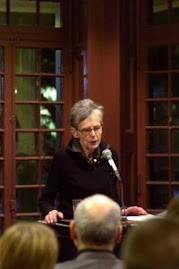
 that anyone has yet got the imaginative measure of that terrifying day six years ago. Certainly our Tolstoy has not crawled out of the rubble. The closest we have, Don DeLillo, succeeded as an essayist-journalist ("In the Ruins of the Future: Reflections on Terror and Loss in the Shadow of September,” Harper’s, December 2001) but, to my mind, failed as a novelist ("Falling Man"). One reason, perhaps, is that the remembered emotion was instantly buried under a pile of cultural junk.' - Tod Gitlin in his review of Susan Faludi's The Terror Dream (written for
that anyone has yet got the imaginative measure of that terrifying day six years ago. Certainly our Tolstoy has not crawled out of the rubble. The closest we have, Don DeLillo, succeeded as an essayist-journalist ("In the Ruins of the Future: Reflections on Terror and Loss in the Shadow of September,” Harper’s, December 2001) but, to my mind, failed as a novelist ("Falling Man"). One reason, perhaps, is that the remembered emotion was instantly buried under a pile of cultural junk.' - Tod Gitlin in his review of Susan Faludi's The Terror Dream (written for 